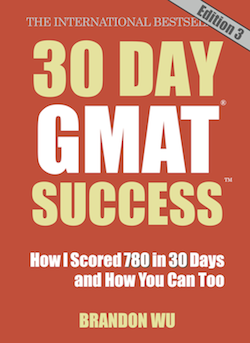GMAT Skills in Real Life: Topic 1
Supposedly more than a test of basic math and grammar skills, the GMAT claims to accurately assess your ability to:
– interpret graphic data
– reason quantitatively
– recognize which information is relevant
– reason and evaluate arguments
– analyze information from a variety of sources
– develop strategies and make decisions
Clearly, these are all skills that are useful in business school and corporate America, but most GMAT test-takers still wonder about the connection between the test and reality. They view it as an unfair and pointless barrier blocking the way to the next phase of their lives. And they certainly don’t take their studies and test results as an indication of their business acumen. Nor should they!
Nonetheless, it can be interesting to think about how GMAT questions might reflect real life concerns. Take percent change for example. A common GMAT trap on both quantitative questions and critical reasoning is to present information in percentages and draw a conclusion based on concrete numbers. Doing so can be misleading.
Say that the price of a stock decreases 50 percent over the last year and then rebounds 80 percent this year. You may think you’ve earned money on your investment. However, if you invested $1,000 dollars and the price decreased to $500, 80 percent of $500 is $400, so you now have only $900. You lost money.
Likewise, if your $1,000 investment increases by 200 percent, you now have $3,000 but if it then decreases by 50 percent, you drop all the way back down to $1,500, not to $2,500 (sell while it’s hot!). If you’ve read the chapter of my book on assigning values, you might understand better now why it can be important to do so. Percent change can be very deceptive.
As a side note, don’t forget that 200 percent of and 200 percent more than are calculated differently. While of signifies multiplication, more than signifies addition. So 1,000 is 200 percent of 500 and 1,500 is 200 percent more than 500. That’s quite a discrepancy if you are negotiating the salary increase you hope to obtain once you finish your MBA studies!

Comments